Is a fractured employee experience fixable by fostering a culture of belonging?
UNLEASH and Achievers explored the challenges to cultivating cultures of engagement, considering different workplace models and experiences from recent months, with our senior HR leader community.
Why You Should Care
HR leaders need to ensure a sense of continuity and belonging are prioritized as we decide and deploy future operating models.
After so much uncertainty, and with the future still unclear, HR leaders must ensure their employees are engaged, supported, and choosing to stay.
In a recent interactive roundtable discussion, we considered how HR leaders work with their C-suite colleagues to achieve this. Find out the valuable insights from our conversation, here.
The benefits of belonging stretch across the organization
As decision time looms for deciding on your organizations’ operating model for the future and testing of hybrid or fully remote employees is still underway in our unique contexts, HR leaders need to ensure a sense of continuity and belonging are prioritized. After so much uncertainty, and with the future still unclear, HR leaders who have been in the trenches of the organization must step up again to ensure their employees are engaged, feel supported, and continue choosing and wanting to stay.
On Monday, 24th January, UNLEASH and Achievers hosted a closed-door roundtable conversation with a select few of our senior HR leader community to explore the challenges in cultivating culture continuity and engagement, considering different workplace models and experiences across the past 18 months.
Challenge 1: Cultural differences in global organizations
The practitioners at this virtual table came from organizations varying in size and locale. The scale ranged from 10,000 to over 300,000 employees. Despite differences in portfolios and functions, each HR leader is seemingly all on a mission to empower people to be their best selves at work and install a culture of belonging and inclusion in their own ways. A noble goal, and one (as we know from research like Achievers’s) that will result in great outcomes for the business overall.
One mission-critical challenge that resonated with the group, however, was translating recognition practices so they work across the organization. A practitioner in the group discussed their difficulties in finding a homogeneity in recognition practices when diverse cultures and business locations came into play. They explained how their organization had just undergone an acquisition – their main organization being based in France and the acquired organization in the US – and how this really shone a light on cultural differences with their reception and championing of recognition programs.
Position, likewise, plays a significant role in culture crafting. A desk-based employee likely has very different experiences, pain points, and recognition needs than a deskless worker. Many of the attending HR leaders represent companies with a wide variety of employee roles; this is a critical problem for many companies. To make matters more complicated, this further varies by geography, culture, and demographic. The best way to understand your workforce’s diverse needs is by asking them directly: solid surveying, data analysis, and effective solutions are the most reliable starting points for your culture transformation.
Challenge 2: Developing the muscle of meaningful recognition
Many organizations are still stuck in the mindset that recognition most powerfully comes from financial incentives and rewards. This makes it easy for managers to put off implementing recognition initiatives, citing a lack of budget. But meaningful recognition is not one-size-fits-all and is not necessarily even monetary; in most cases, beginning with a “thank you” and a visible strike at understanding your employees’ needs really can be enough.
As the workforce undergoes a significant transformation, there is an excellent opportunity to create more personalized and powerful recognition strategies. This group of HR leaders agreed that impactful recognition strategies that go beyond financial incentives – which, as one leader pointed out, often offer only short-term benefits – require a significant mindset shift amongst the people managers and leaders. Encouraging more meaningful relationships between managers and employees is critical in adding nuance and improving engagement. Knowing what drives your employees and makes them feel seen empowers you to craft a robust approach that genuinely adds value.
Sophisticated belonging initiatives often incorporate multiple measures anchored within a broader engagement strategy and offer long-term, high-impact effects. Ambassador programs can be an extremely effective way to establish a new recognition initiative, helping you win leadership buy-in and get real-time feedback from employees. Once your strategy is defined, you can integrate it into your talent development program, promoting a culture of growth, learning, and belonging across the board. These are benefits you simply cannot gain from a superficial recognition and belonging approach.
The 5 pillars of belonging:
Achievers have tried to answer, “How can HR leaders cultivate a culture of belonging that positively impacts their employees?” in its recent research report: the 2021 Culture Report on Belonging at Work. The report outlines the Achievers Workforce Institute’s research findings, based on 3500 global survey respondents in June 2021. From the results, Achievers can prove that the impact of belonging reaches across the organization. With so many employees working distantly, ensuring that employees feel recognized and connected with your organization is crucial. An authentic culture of belongings will improve employee engagement and productivity, leading to reduced attrition and a more resilient workforce.
To learn more about the study, UNLEASH is hosting a now-on-demand session with Dr. Natalie Baumgartner, Chief Workforce Scientist at Achievers, where she discusses the five pillars of belonging and how you can improve existing DE&I and employee experience programs to develop belonging inside your organization.
Why join an UNLEASH Roundtable?
Amid the current disruption, HR leaders need to get ahead of the exponential trend where work, technology, and how work gets done have changed forever. But how should we approach the relevant questions, given the radical uncertainty we continue to face as the pandemic becomes more protracted than anyone imagined? Our exclusive Virtual Roundtables are designed to explore where business leaders are focused now, key challenges and prioritization for the rest of the year, and what matters most in planning for what’s next.
Find out what’s upcoming via our Event Calendar.
Sign up to the UNLEASH Newsletter
Get the Editor’s picks of the week delivered straight to your inbox!

Production Director
Paige is the Production Director at UNLEASH, focusing on the curation of our event portfolio.

